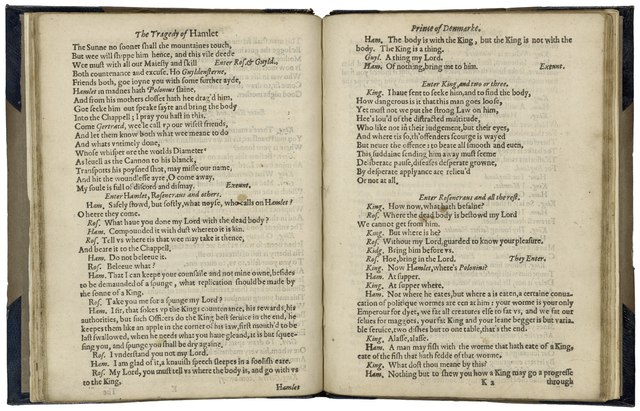
The Language Of Shakespeare
The language used by Shakespeare in his plays contains over 17,000 individual words, and approximately 10% of these words are entirely his own invention. Of course, of these there have also been a few that have failed to stand the test of time. Shakespeare’s ‘kickie-wickie’, found in All’s Well that Ends Well, an affectionate name for a wife; ‘discandy’, meaning ‘to dissolve’, in Antony and Cleopatra; and – perhaps least surprisingly – ‘honorificabilitudinatibus’ in Love’s Labour’s Lost, which means ‘the state of being able to achieve honours’, never became widely used and have now faded into oblivion.
However, most of the words which Shakespeare invented around 400 years ago are still to be found everywhere in modern English. His impact on the English language can hardly be overestimated. Melvyn Bragg observes, in The Adventure of English (2003), that: ‘‘The language at that time was in flux: Shakespeare must have made it dizzy […] Shakespeare shoved into bed together words that scarcely knew each other before, had ever even been introduced. […] There were no rules and Shakespeare’s English ran riot.’ Revelling in his linguistic freedom, Shakespeare employed multiple strategies to create new words. These strategies included compounding (as in the case of ‘fancy-free’ and ‘tell-tale’), adding prefixes and suffixes (as in ‘endanger’ and ‘gloomy’), conversion (he converted the adjective ‘happy’ to the noun ‘happies’, and the noun ‘child’ to the verb ‘childed’) and borrowing from other languages (his ‘majestic’ is taken from the French ‘majeste’ meaning ‘grandeur’, his ‘dextrous’ from the Latin ‘dexter’ meaning ‘skilful, and ‘mallecho’ from the Spanish ‘malecho’ meaning ‘evil deed’). Not only did Shakespeare create new words, he also had a significant impact on punctuation and syntax; he helped to standardise the use of the apostrophe, and he introduced innovations with inverted syntax, as in ‘To be or not to be, that is the question’. Furthermore, numerous phrases by Shakespeare remain in common use today, including ‘dead as a doornail’, ‘the game’s afoot’, and ‘mind’s eye’.
The Scope Of Shakespeare’s Influence On Our Language
In the light of his relatively low level of education, Shakespeare’s impact on the English language is still more extraordinary. He did not go to university. He would have learned Latin at school and church, and probably picked up some French and Italian later in life, whilst living in cosmopolitan London. These languages filtered into his writing, as did the older English words of his early years, like ‘geck’ meaning ‘fool’.
Shakespeare’s vocabulary was vast, even by modern standards: his active vocabulary has been estimated at 21,000 to 30,000+ words, whereas the active vocabulary of the average modern-day adult has been estimated at just 10,000 words (James Milton and Jeanine Treffers-Daller, University of Reading) and that learning new words enhances memory (Richard Restak, George Washington University). Moreover, research by Philip Davis at the University of Liverpool suggests that grappling with Shakespeare’s language can have a beneficial effect on brain activity. He states the following as explantion: ‘The brain reacts to reading a phrase such as ‘he godded me’ from the tragedy of Coriolanus, in a similar way to putting a jigsaw puzzle together. If it is easy to see which pieces slot together, when you become bored of the game, but if the pieces don’t appear to fit, when we know they should, the brain becomes excited. By throwing odd words into seemingly normal sentences, Shakespeare surprises the brain and catches it off guard in a manner that produces a sudden burst of activity – a sense of drama created out of the simplest of things.’
So perhaps it’s time to get stuck into one of Shakespeare’s plays: read it, or better still see and listen to it in performance, and let his words flood into your brain and fire your imagination.
If you are interested in studying English or English Literature, Oxford Open Learning offer the chance to do so at a variety of levels, listed below. You can click on any of them to find out more on the relevant subject page. You can also Contact Us by clicking on the this link.